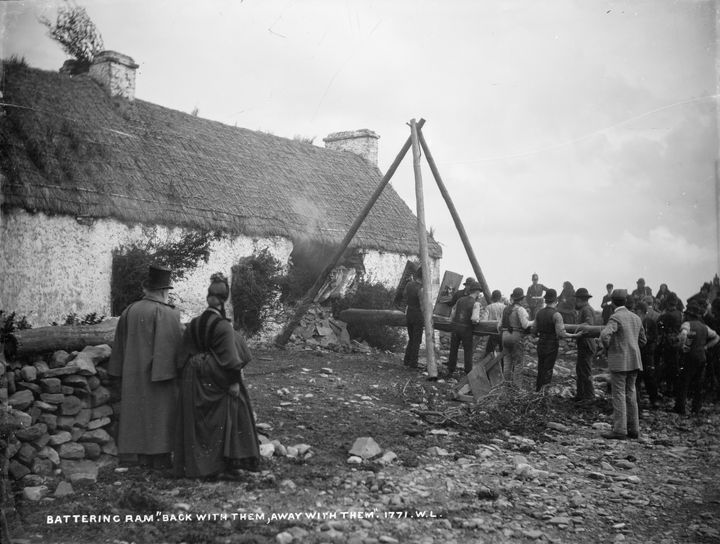Reducing Functionalism to a Homoeopathic Dilution

(This post continues my look at the idea of futurity and liminality. Futurity is the time span over which a decision is effective and liminality is a stage of ambiguity and disorientation that precedes a new way of thinking. Fortunately for everyone, I'm starting to get to the point).
I'm searching for a term to identify the profession of people who take responsibility for helping us navigate the liminal state of modern business. One thing I've discovered from this search is that I've become sensitive to language. A word which I'm wary of is ‘entrepreneur’. The word has a rich and troubled history. It’s current use is, in my humble opinion, out of context and at too vague. It seems to describe everything and therefore nothing.
It’s specific sense of a businessperson who makes digital tools sometimes intersects with the general sense of the ‘misfit' entrepreneur. But the idea of the misfit entrepreneur is itself a misfit, as I learned from Rosie Collins:
“When I wake up in the morning, I see an age of Generation Z. A digital world, where times have changed, and where variety is what makes us rich. I see value in moving fast and staying dynamic. I see more than one way to skin the cat. So in 2016, let’s drop the misfit entrepreneur narrative. Let’s not pretend the only ones who leave education are misunderstood”
The sense I tend towards is that used by the French economist J B Say to describe a person that moves people and resources to their most productive use. The original root of the word described a person with an adventurous disposition, someone daring and willing to take on challenges.
Why the fuss? Because the person who successfully takes on challenges will change the odds and upset the balance of the way things currently are. It’s this person I'm interested in. So far I've identified this person takes responsibility for bringing something important into being, where important means something economically and socially valuable to the community that sustains them.
This person also understands they work within two time dimensions simultaneously. And this person is oriented towards achieving the unique events that will change the timeline such that they achieve their aims. This is important because where this person, the [.] of my story, succeeds, they upset the plans of others.
Over the last few posts I've talked about the seductive but impotent power of planning, particularly long range planning. I've talked about how the [.] must come to grips with the idea of futurity, the effective time frame of a present action.
People are drawn to explain and reduce the uncertainty we see around us. We yearn to establish causality over the world. We tend towards a collective mania to place our world within the boundaries of the known. Which is exactly what the successful [.] disrupts. Where a [.] creates a series of unique events, each event invalidates long range plans.
This means, in order to bring into being the long range plan (even as an approximation of the original), the activities of the [.] must be curtailed.
The more energetic this person, who we might call a change agent (though I think this does the individual something of a disservice), the more disruption they create and the louder will become the calls to place them in a situation where they can’t make a nuisance of themselves.
Because they keep screwing with the forecasts.
The tragedy is that it’s the [.] who is more likely to help the organization achieve the intent of its own change journey. This is one of the great challenges of senior leaders in organizations seeking to emerge intact from our liminal business environment. How to construct sufficient social support for these people without introducing so many unique events into the mix that the organization shakes itself apart?
I'm not just chucking stones at finance, procurement and IT professionals. I'm saying this is an ‘and’ proposition: the senior leaders needs both types. This goes to the ‘adaptive and technical leadership’ model of Ronald Heifetz.
What I am chucking stones at is the unreflective application of the functional principle to organizational design. What I mean by unreflective is the automatic use of mass-production era techniques to social-business era challenges.
A time consuming and onerous task we face is to carefully assess the implications of what we use to solve our present day problems. Remember what futurity is about: the effective time frame of a present action. If we use a tool or technique to solve one present problem that over the fullness of time creates five future problems we have a duty of responsibility to put the tool down. This is the idea behind Maslow's Hammer which is where, if all we have is a hammer then everything looks like a nail.
Functional specialization is a great response to a particular situation but it doesn't belong as the basis of organization by default. We need to understand what these situations are to avoid creating strategic weaknesses of significant futurity. Functional specialization can complicate communication within an organization and we rely on communication to turn data into information.
Functional specialization can also set up the problem of goal displacement, where we focus on the functional because it should provide for the strategic. That it so often doesn't is in itself an excellent reason to pause before chopping the enterprise up.
The Finnish thinker Esko Kilpi went into this issue in depth last year in a post on Medium, from which I've selected some key sentences:
“In larger organizations everybody is a long way away from everybody else. As a result an individual’s perception of the world is narrow and confined to a small group of immediate acquaintances. People do things that make sense in their particular context and from their point of view”
“The cognitive opportunity of connecting lies in the fact that as we don’t all select the same things, we don’t all miss the same things. If we can pool our insights in a creative, enriching way, we can thrive in the complex world we live in”
“For interaction, the challenge is human engagement. Widening the circle of involvement, connecting the contexts, means expanding who gets to participate. It is about inviting and including relevant, new and different voices. Rather than an organization being thought of as an imposed structure of separate, autonomous functions and individuals, today’s organization arises from the interaction of individuals who need to come together”
“This shift in the way we see organizations changes the way we perceive competitive advantages. The new competitive edge comes from openness and interactive capacity: the ability to participate and connect”
“Different people see different things and new interdependencies are created, thus changing the organization. The easier the access that people have to one another and to different information is, the more cognitive and creative possibilities there are”
“No one person or function can meet today’s challenges alone. No one point of view is enough. We need a community of people who willingly participate and provide their insights to address increasingly interdependent issues”
Kilpi’s point around ‘… new interdependencies are created, thus changing the organization’ goes to the main point of this post: that forecasting is at once an exercise in wishful thinking and anchoring. The caveat I make is that where we can model complex dynamic adaptive behaviour we will have a better chance of redeeming the planning function. The problem is that too many planning professionals inhabit a deterministic world and, as I noted above, successful entrepreneurial behaviour changes the odds and resets the possibility set.
Kilpi makes an important point with ‘Widening the circle of involvement, connecting the contexts, means expanding who gets to participate. It is about inviting and including relevant, new and different voices’. On the one hand this means reducing functionalism to a homoeopathic dilution (that is, basically undetectable), while on the other it refers to one of the basic tasks of the [.] (to make the strengths of people effective). Furthermore this goes to what J B Say envisaged of the mission of the entrepreneur, to move people and resources to the most productive opportunities.
There is one final point I want to make here. Where the functional specialisation becomes a homoeopathic dilution, so the [.] needs to find a way to combine both the adaptive and technical qualities of leadership in their work. I don’t buy into the leader vs manager dichotomy and neither do I buy the adaptive vs technical leader dichotomy. I'm looking for the ‘and’. Not because I'm interested in identifying a new species but because I'm seeking to point to a species that (I believe) has always been in place.
Because forming follows breaking and where the [.] must upset their own probabilities they must then put time and energy to capitalising on that change.



